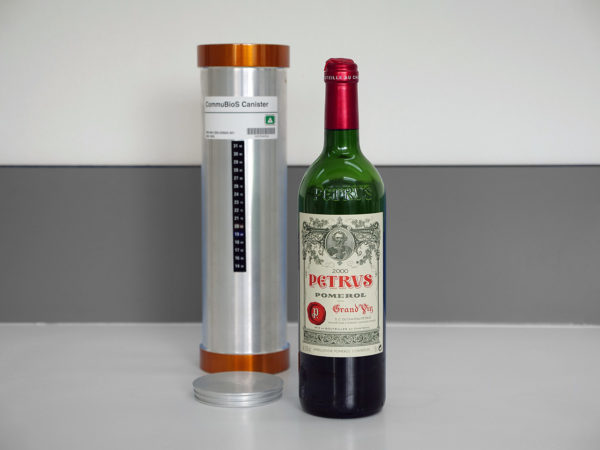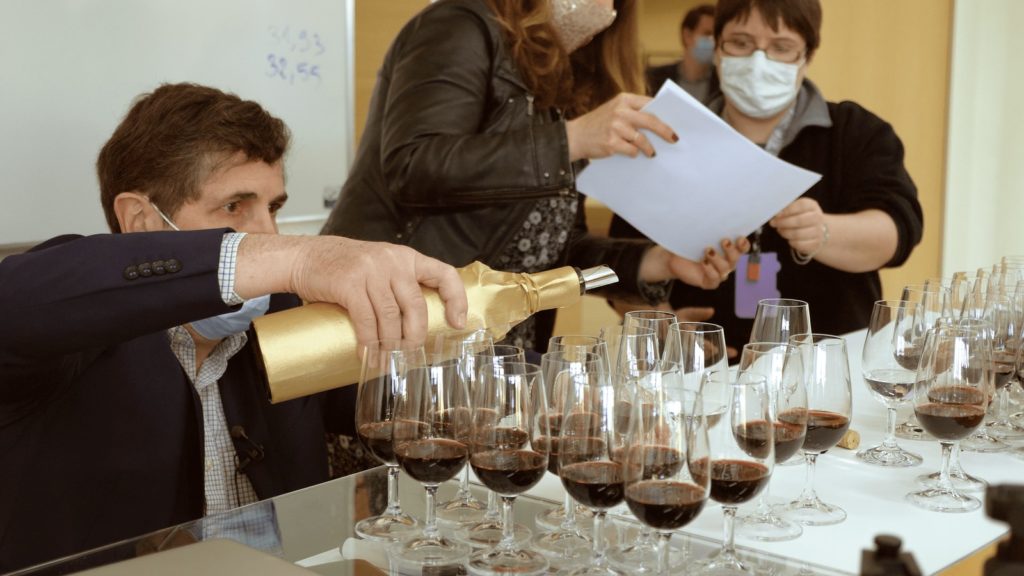Scientists sent wine into space for 14-months and then tasted it

Scientists sent wine into space for 14-months and then tasted it
By Emily Mullen
A panel of 12 experts gathered in Bordeaux to taste the high-flying space wine
Humans are obsessed with sending stuff into space and seeing how it copes, we do seem to have started big initially sending humans, dogs, chimpanzees, but now things are getting increasingly random. With American aerospace manufacturer and space transport services company, SpaceX, sending wine and vine shoots into space for an extended period of time.

In November 2019 SpaceX sent 12 bottles of 2000 vintage Château Petrus wine and 320 Merlot and Cabernet Sauvignon grapevine shoots to the International Space Station (ISS). For 14 months (438 days and 19 hours) the wine orbited the earth before returning in January via a SpaceX Dragon cargo ship. After their adventure, the bottles were flown to Bordeaux where they underwent a blind taste test on March 1st, the preliminary results of which were announced yesterday.
With glass and alcohol prohibited on the ISS, the wine was stored in individual metal cylinders during their 300 000 000 km round trip. Upon its return to earth, the space wine was kept in zero gravity storage before the testing. “It was with great emotion that we recovered the twelve bottles of 2000 vintage Petrus in Bordeaux at the beginning of February, intact and having withstood all the constraints of preparation, travel, and storage on the ISS,” said Nicolas Gaume, co-founder of the Space Cargo company. “Of course, the analysis is still in its early stages, but the first findings are very promising for the future of the research program,” he added.
12 experts gathered in Bordeaux to taste how the spaced aged wine compared to its terrestrial counterpart. The results of the taste test which were published in a report deemed the space wine to be aged more than two or three years more than the earthly wine. Panelists noted that the intergalactic wine had a brick-like reflection with some ruby hues, with notes of rose petals and a taste of “campfire”.

Two bottles of each wine were opened for the panelists, with the coordinator of the research, Emmanuel Etcheppare confirming that participants were unaware of which wine they were sampling. “The rigorous protocol allowed us to challenge each participant in this tasting. Real differences were noted with both appearance and taste. It was more complicated for the participants to differentiate olfactory dimensions,” he said.
“The earth wine was exactly how you would expect it to taste,” said Decanter magazine’s Bordeaux correspondent, Jane Anson who attended the tasting. Anson confirmed that the space wine was more developed in taste than the earthbound bottle, “there were more floral aromatics the tannins were a bit softer and more evolved”. Although Anson added that she had only tasted one bottle stored in the space station, and was unable to say whether this was a conclusive taste or a variation of the specific bottle sampled.
Professor Philippe Darriet, of the Institut des Sciences de la Vigne et du Vin’s oenology research unit, said that the panel unanimously considered the two wines to be “great wines” despite one of the wine’s extended stay in the International space station it was “very well evaluated sensorially” he added.
Space Cargo Unlimited’s choice of wine is described as “no coincidence” by the organization. A bottle of Château Petrus 2000 is priced around €3,800 by wine-searcher.com. “Known worldwide for its exceptional qualities, Petrus is predominantly mono-varietal and has a documented history that allows us to measure the effects of the wine’s time in space. The 2000 vintage also offers a beautiful structure that will allow us to fully appreciate this impact,” a representative from Space Cargo Unlimited said.
Space Cargo is aiming to continue their research on the wines that spent 10 months in space. On their return to earth, they underwent microscopic analysis and were planted a couple of days later, some in the greenhouses of Institut des Sciences de la Vigne et du Vin in Bordeaux, and others in the greenhouses of the Mercier Group in the Vendée region. Researchers have found that the absence of microgravity on the vine shoots is already visually apparent, with the buds appearing and growing faster than the vines kept on Earth in similar conditions.
This experiment is part of Mission WISE which aims to tackle the future of agriculture by leveraging microgravity and its impact on biological systems. Space Cargo claim that this experiment would provide information on different stresses and exposures plants can withstand in an effort to fight disease and climate change.
Elsewhere on District: Zero Waste Gelato shop finds new home in Dublin 8